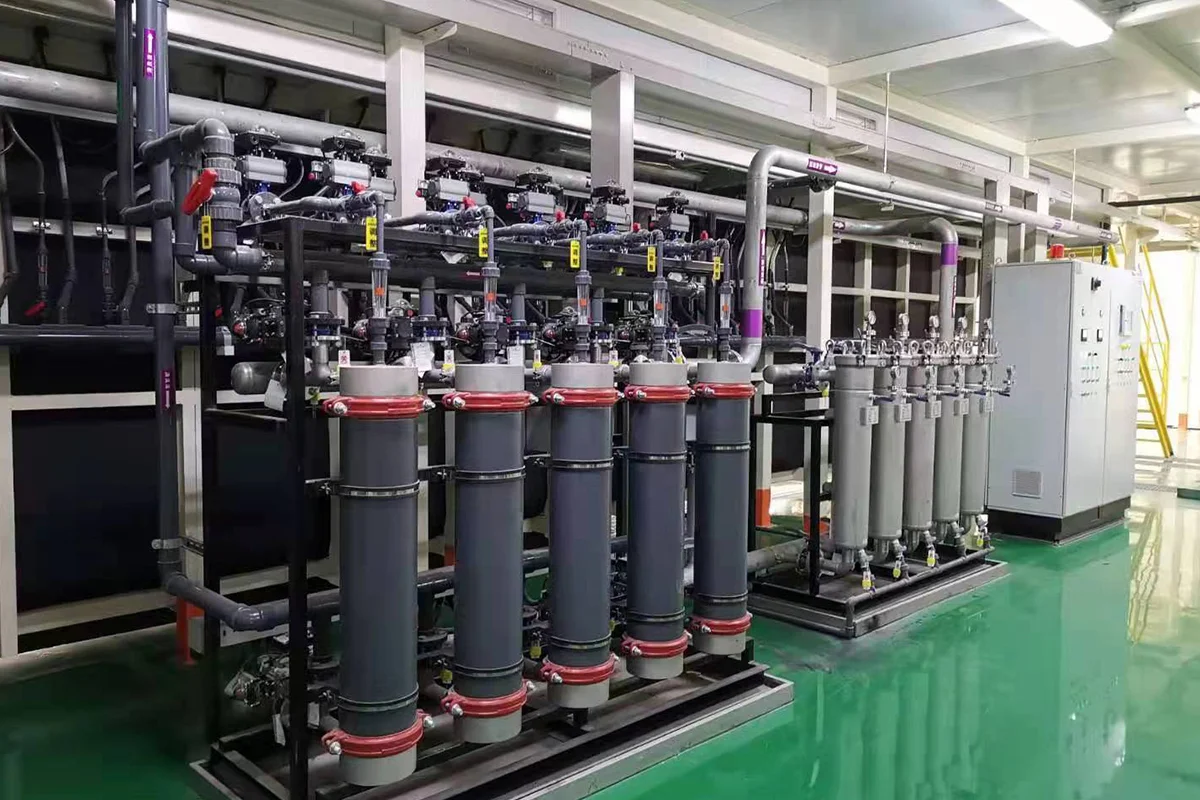- This topic is empty.
-
AuthorPosts
-
2025-09-08 at 6:23 pm #81853
Electrophoretic ultrafiltration equipment is a unique separation device that integrates two powerful technologies: electrophoresis and ultrafiltration. This innovative combination allows for the efficient separation, purification, and concentration of macromolecules in solution. The equipment has gained wide application in biopharmaceuticals, industrial manufacturing, food processing, and environmental protection, making it a versatile solution for modern research and production needs.
By uniting the electrical driving force of electrophoresis with the selective filtration capabilities of ultrafiltration membranes, electrophoretic ultrafiltration equipment achieves higher resolution and efficiency compared to conventional separation methods. In this blog post, as a professional painting equipment exporter, Lexuan will share the advantages of electrophoretic ultrafiltration equipment for sale, its, applications, etc.
Principles of Electrophoretic Ultrafiltration System
Basic Working Mechanism
At its core, electrophoretic ultrafiltration equipment uses a semi-permeable membrane to separate molecules based on size, charge, and shape. Larger macromolecules are retained on one side of the membrane, while water, salts, and smaller molecules are able to pass through.
The integration of electrophoresis enhances this process by applying an electric field, which drives charged molecules toward the membrane, increasing the efficiency and speed of separation. This makes the technique ideal for handling complex biological samples, proteins, or industrial paint solutions.
Core Process in Electrophoretic Ultrafiltration Equipment
-
Ultrafiltration Membrane Function
Liquids within the electrophoretic tank pass through an ultrafiltration membrane, where paint particles or biological macromolecules are separated from low-molecular-weight impurities. -
Filtrate Recovery and Recycling
The recovered filtrate can be directly reused in the tank, minimizing waste discharge and improving material utilization. This closed-loop design not only reduces environmental impact but also lowers operational costs.

Technical Advantages of Electrophoretic Ultrafiltration Equipment
High Separation Efficiency
The synergy of electrophoresis and ultrafiltration provides superior separation performance. While electrophoresis ensures accurate molecular migration based on charge, ultrafiltration sets precise molecular weight cut-off levels, enhancing selectivity.
High Resolution and Precision
Conventional filtration methods often fail to separate closely related molecules. In contrast, electrophoretic ultrafiltration equipment delivers high-resolution results, crucial for applications such as protein purification or nanoparticle separation.
Ease of Operation
With automated control systems and user-friendly interfaces, modern electrophoretic ultrafiltration systems simplify complex workflows. This not only reduces human error but also ensures consistent reproducibility across experiments and production cycles.
Wide Range of Applications
The versatility of electrophoretic ultrafiltration equipment makes it suitable for various sample types:
-
Biopharmaceuticals: Protein concentration, antibody purification, vaccine production.
-
Metal Product Coatings: Removal of water-soluble impurities in electrophoretic paints.
-
Environmental Protection: Recovery of valuable substances and reduction of wastewater pollutants.
Energy Efficiency and Sustainability
The design of electrophoretic ultrafiltration equipment emphasizes low energy consumption. By reducing power requirements and enabling filtrate recycling, these systems meet modern environmental standards while lowering production costs.
Reliability and Durability
Industrial-grade materials and robust construction ensure long service life and minimal downtime. This high reliability makes the equipment an attractive investment for both laboratories and manufacturing facilities.
Applications of Electrophoretic Ultrafiltration Equipment in Different Sectors
Biopharmaceutical Manufacturing
In pharmaceutical industries, electrophoretic ultrafiltration equipment is essential for the separation and purification of proteins, enzymes, and nucleic acids. It provides a reliable method to concentrate biomolecules while maintaining their functional integrity, which is critical for drug development.
Industrial Coatings and Metal Products
Electrophoretic coating, widely used in automotive and appliance industries, relies on ultrafiltration to maintain bath stability. By removing excess ions and impurities, electrophoretic ultrafiltration equipment ensures a uniform, durable coating on metal surfaces.
Environmental Applications
This technology also plays a significant role in wastewater treatment. It enables the recovery of useful byproducts from industrial effluents and reduces harmful discharges into the environment, contributing to sustainable production.
Food and Beverage Processing
Although less common, electrophoretic ultrafiltration equipment is gaining interest in food biotechnology, where it helps refine proteins, enzymes, and other functional ingredients.
Future Development
The demand for advanced separation technologies continues to rise. In the future, electrophoretic ultrafiltration equipment is expected to evolve in several ways:
-
Integration with AI and IoT: Smart monitoring systems will improve efficiency, predict maintenance, and optimize workflows.
-
Miniaturized Systems: Portable versions may support on-site testing in environmental monitoring or field-based biopharmaceutical research.
-
Greener Technologies: Further reductions in energy use and waste will align with global sustainability goals.
These developments will not only expand the scope of applications but also make electrophoretic ultrafiltration systems more accessible to smaller laboratories and specialized industries.
Conclusion
Electrophoretic ultrafiltration equipment is more than just a laboratory tool—it is a transformative technology that combines the precision of electrophoresis with the efficiency of ultrafiltration. Its broad applicability across biopharmaceuticals, industrial manufacturing, coatings, and environmental protection makes it indispensable in modern industry.
With continued advancements in automation, energy efficiency, and material design, electrophoretic ultrafiltration equipment will remain at the forefront of high-resolution molecular separation and sustainable production processes.
http://www.lexuaneqpt.com
Lexuan -
-
AuthorPosts
- You must be logged in to reply to this topic.